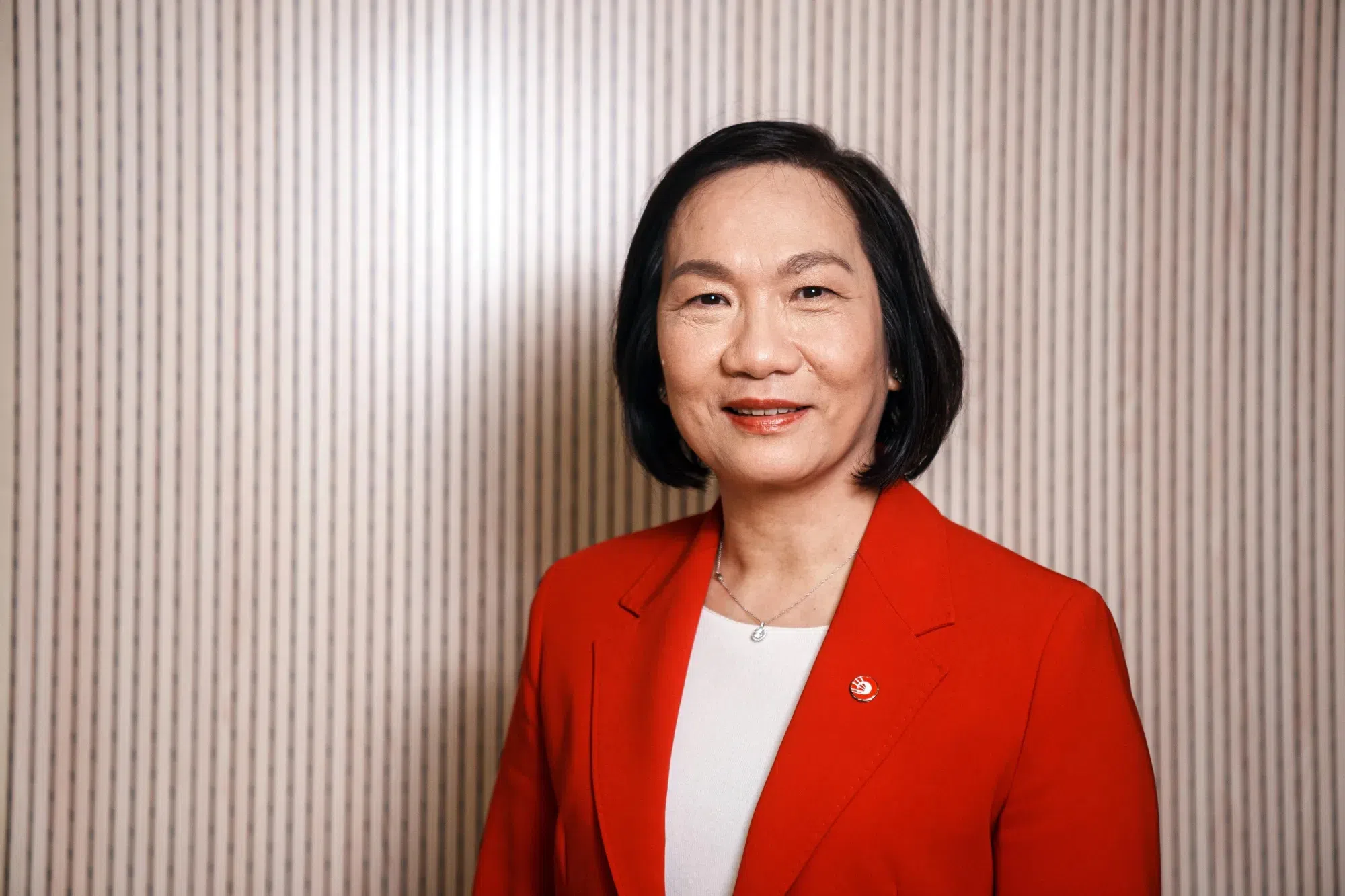OCBC has enough capital for business growth even as chief executive officer Helen Wong signals her appetite for deals while keeping the bank’s dividend policy.
“We are well-capitalised,” Wong said on Wednesday (Nov 13) in an interview on Bloomberg Television. “We have prepared for both organic growth and certain inorganic growth opportunity.”
OCBC has funds available for M&A opportunities as well as investing in its businesses from its wealth platform to artificial intelligence, said Wong, who has led the bank since 2021. The lender is also on track to maintain its 50 per cent dividend payout ratio, she added.
She said the bank will consider potentially paying more to its shareholders if the bank’s capital remains high after funding growth plans.
Wong’s acquisition strategy underscores how much the business serving the rich supports the bank’s profitability. OCBC’s wealth revenue includes income from its private bank – Bank of Singapore – as well as lower-rung consumer, insurance and brokerage units.
OCBC continues to be on the lookout for deals, with Wong highlighting the interest in Indonesia, as well as in wealth-management assets. Other potential targets would be in Malaysia and Greater China, while Singapore presents less propositions for dealmaking.
BT in your inbox
Start and end each day with the latest news stories and analyses delivered straight to your inbox.
“Indonesia has better opportunity and we like the growth and how Indonesia is evolving as a big economy,” she said.
For wealth assets, OCBC would prefer buying a portfolio of clients which doesn’t duplicate too much with what the bank already has, rather than buying an entire bank, she said.
The bank has been striking deals. It is now in the middle of bidding for full control of Great Eastern Holdings and had offered S$1.4 billion to buy the remaining stake in the Singapore insurer that it does not currently own. It also completed its acquisition of Bank Commonwealth in Indonesia this year.
Wong declined to disclose the amount of OCBC’s excess capital and analysts’ estimates vary, though it’s seen to be higher than its rivals. CreditSights’ Karen Wu said the number stands around S$3.6 billion and Bloomberg Intelligence’s Rena Kwok sees it at around S$4 billion to S$7 billion.
“We think that OCBC’s capital management plans are vague versus major local peers such as UOB and DBS who have mentioned clearer pathways for capital returns via possibly increased dividends and share buyback plans,” Kwok said.
Singapore’s top banks are having a bonanza year, with profits spurred by their wealth-management business that prospered as the city-state attracted funds from global investors.
OCBC is enjoying the wealth-driven income boost along with rivals DBS Group Holdings and United Overseas Bank with share prices of the trio all rising to record levels last week.
DBS chief Piyush Gupta unveiled a S$3 billion share buyback plan, the first time the lender will cancel the shares after repurchase as a way to manage excess capital. UOB will consider a similar move among other options.
On the other hand, OCBC prefers to use dividends to manage its capital, given its price-to-book ratio of just above 1, chief financial officer Goh Chin Yee said last week during an earnings briefing.
OCBC reported its third-quarter profit rose 9 per cent to S$1.97 billion, roughly in line with analysts’ estimates of S$1.91 billion. Wealth income, which includes banking and insurance, rose 15 per cent from a year ago.
Asked about the economy in China, where the government has rolled out a variety of stimulus packages including partial relief on local government debt, Wong said: “I see improved sentiment. More measures are likely.” BLOOMBERG







